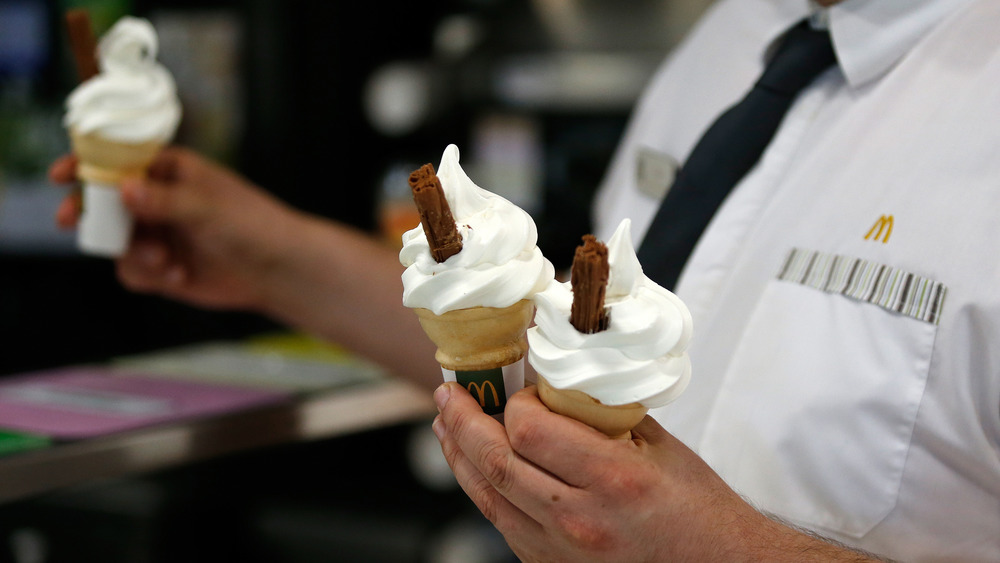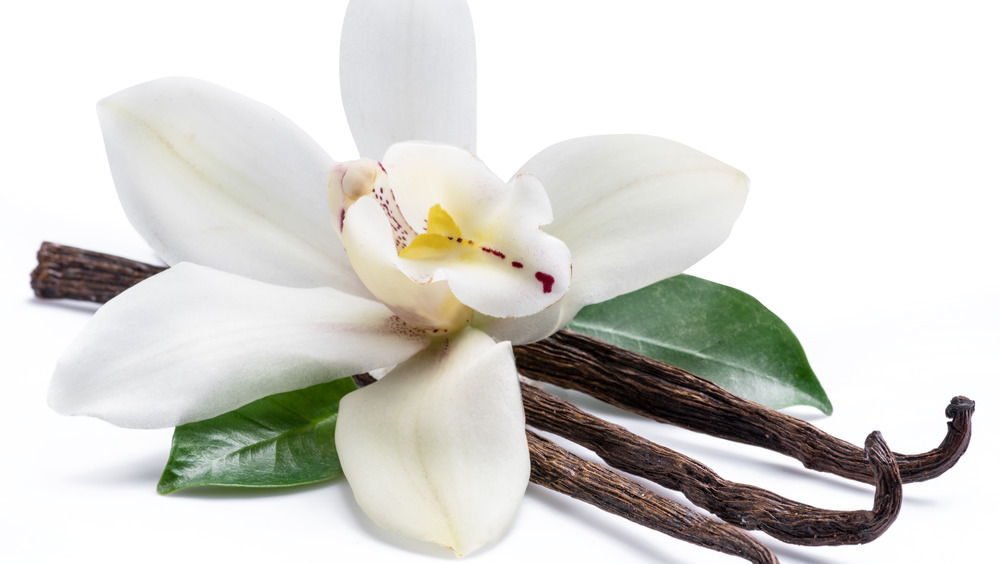The Reason People Are Trying To Sue McDonald's For Its Vanilla Cones
In California, McDonald's faces a proposed class action lawsuit. According to Lexology, the allegation is that by promoting cones with vanilla flavoring as vanilla cones, McDonald's tricked customers into thinking that the ice cream they bought derived its flavor from real vanilla plants. McDonald's, of course, denies this allegation and has moved to dismiss the case, stating that no person ordering a vanilla cone from a fast-food restaurant would actually expect vanilla as the sole flavoring ingredient.
The court heard this motion to dismiss the case on February 18, but the judge has yet to reach a decision.
However, Spencer Sheehan, a lawyer from Long Island's Great Neck, disagrees with McDonald's move as he has, according to the Forward, already filed nearly 100 lawsuits in over four states including California that were concerned about the lack of vanilla in products advertised as vanilla. In addition to McDonald's, his targets have included Keurig and Dr Pepper. In a profile for Inside Edition, he outlines his complaint about McDonald's added ingredients, writing in a lawsuit against Wegmans that their products are "not flavored mainly from vanilla and has no vanilla, or at most, a de minimis, or trace amount of vanilla."
Barely containing vanilla goes a step further than innocently accepting that other ingredients may be included in the product. However, in Wegmans case, ABA Journal notes that the presiding judge let them off due to the fact that consumers could check the label of an ice cream tub before purchasing it.
Vanilla is a growing field for litigation
In a 2018 volume of Perfumer & Flavorist, John B. Hallagan and Joana Drake of The Flavor and Extract Manufacturers Association of the United States warned that the combination of reduced vanilla supplies and increased public awareness about possible litigation will result in an increased number of lawsuits over whether or not vanilla is contained within goods advertised as such. In fact, as they note, "Over the last several years, class-action lawsuits involving some aspect of alleged false advertising of food products has become one of the fastest growing areas in class litigation."
A major reason behind the increase in artificial vanilla flavoring is the shortage of natural vanilla. NPR reported in 2017 of a vanilla shortage. The issue was that for a long time, producing vanilla was too labor-intensive to be worth the petty price it commanded, so farms disbanded. Then, around 2014, Nestle and Hershey's decided to make all of their vanilla products naturally sourced, thus creating a demand that far outpaced the previously meager supply. This affects prices in turn. Where once a gallon of vanilla would cost $64, by 2017 it almost quadrupled to $245.
The flip in vanilla's fortunes means that without large amounts of cash like Nestle or Hershey's, you either have to reduce the amount of vanilla used or substitute it with vanilla flavoring. But not as many people would buy vanilla-flavored ice cream cones from McDonald's, would they?

